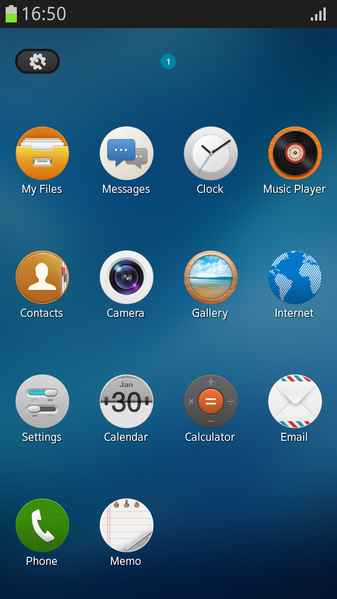

THE GROWTH of Android is almost inarguably fantastic (from zero percent to 80% in just a few years), but Android is not the only game in town as far as 'small' distributions of */Linux are concerned. Sailfish OS, which comes from Nokia (former staff), is looking increasingly mature [1] and smartphones running this operating system are expected to come out this month [2]. Pessimists don't think that non-Android Linux tablets can do well [3], but when it comes to smartphones there are several challengers and they include Ubuntu, Firefox, and Tizen.
...we have found out about the mapping system on Sailfish OS made by the Swedish company called Appello based on HERE maps material.
Finnish startup Jolla has revealed when the first batch of its Sailfish OS–based smartphones will be available to customers, along with new information about what software will be on offer when the devices ship.
On Thursday, the company announced via Twitter that the handsets will go on sale in Finland first, thanks to Jolla's partnership with local carrier DNA. The devices will hit retail shelves in Helsinki on November 27, with a price tag of €399.
Canonical with their Ubuntu Touch initiative isn't the only project that's failed to deliver as of yet with a successful non-Android Linux tablet.
While there's arguably still hope left for Ubuntu Touch to become a commercial success, there's been more Linux tablet projects that have faded away.
There was Tizen news aplenty at the Tizen Developer Summit including a Tizen 2.2.1 release, new details on Tizen 3.0, a Tizen-based Samsung NX300M camera, and an upcoming Tizen Mobile Lite version for low-end phones. Yet, there was no sign of the Tizen phone, and a Samsung executive was quoted as saying that the first Tizen phone would be delayed until 2014.
While lawyers pettifog their patent arguments in the Apple-Samsung World Series, the South Korean has been quietly recruiting partners and developers to Tizen, and has launched its first Tizen-based product – a camera, not a phone.
While the South Korean company is acting as evangelist-in-chief for the Tizen operating system, the project itself has a couple of years of history behind it, having been established in 2011 by the Linux Foundation.
It's been a bit of a slog: back in May, the project still expected its first smartphones to land by the end of this year, something that's proved unachievable.
Tizen is a fresh new project, but it has roots in several pre-existing platforms including the distributions Moblin, MeeGo and LiMo. According to the Tizen Association, "The mobile marketplace has undergone extensive change over the past few years. New platforms have emerged, new revenue models have been enabled, and innovations continue to emerge rapidly from all corners of the industry. Tizen is an open-source solution that provides an innovative platform offering a high level of flexibility in service selection and deployment."
Modularity in smartphones could "go a long way to overcoming whatever inflexibility is left in the system of small, cheap computers," blogger Robert Pogson suggested. "Rather than just tweaking software, the end user or retailer can mix and match bits of the hardware, too.